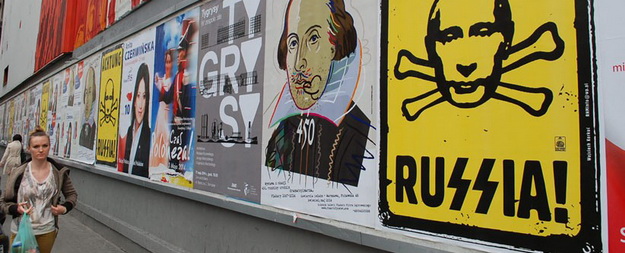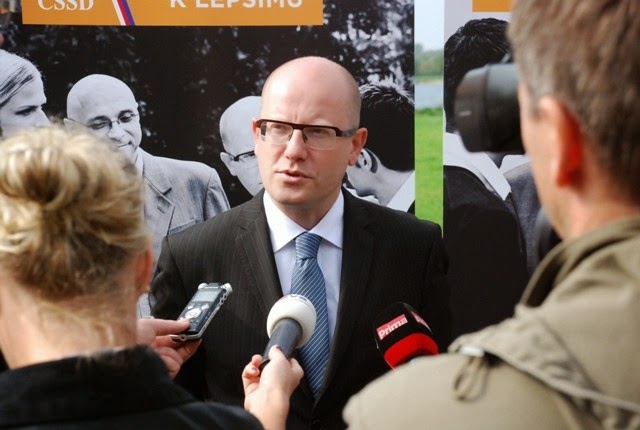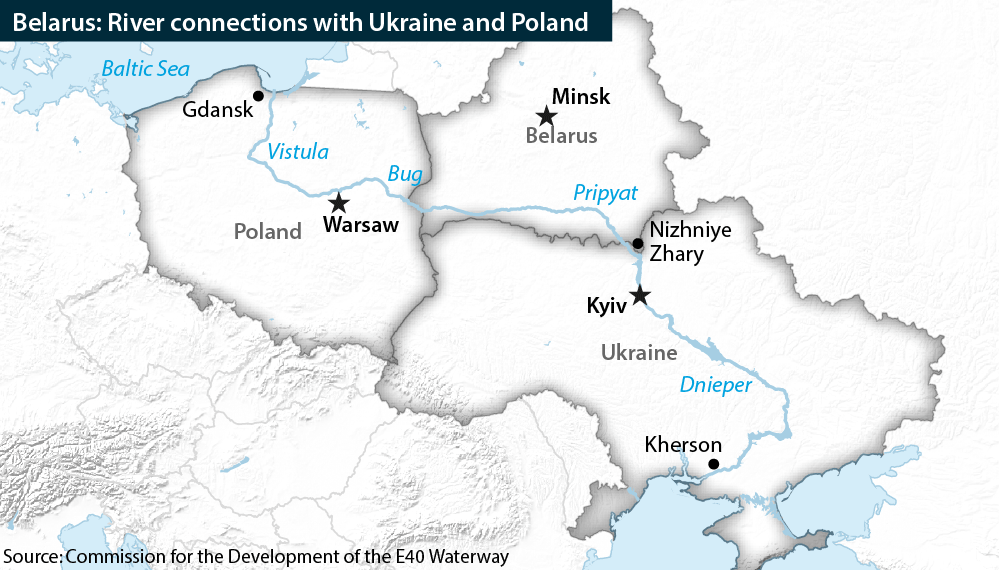Obviously, the notes below are purely subjective. But I feel like we can outline certain tendencies.
Ukraine in European media and European minds
The Ukrainian issue is currently secondary in the newspapers a European citizen may take during breakfast at a hotel or buy in a kiosk.
The Times’ main problems are the return of British troops to Iraq, the sex scandal with the Libyan soldiers who trained in England, the events in the Parliament or even the details of the private life of Benedict Cumberbatch, the actor who played the leading role in the TV series Sherlock.
Ukraine is mentioned in the middle of the newspaper, where some blogger writes about the wall at the Ukraine-Russia border. He says modern Europe began with the fall of the Berlin Wall, but the time has come to construct a wall instead.
The Independent has a tiny bit of 12 lines on Ukraine in the right-hand corner on page 37
about the fact that the separatists accused Kyiv of shelling. However, the main topics are, again, Iraq, the private lives of the conservative party, immigration etc.
Gazeta Wyborcza predictably gives more attention to the topic of Ukraine: the events in Donbas are on page 11, followed by a much bigger article about the problems in the borderline regions of Ukraine and Poland, and, at the end, on FC Shakhtar, which moved to Lviv.
Polish TV focuses of discussing the specific, for Europeans, historical evaluation of the Molotov-Ribbentrop pact given by Vladimir Putin.
***
However, there is no special involvement in Ukrainian events among Eastern-European intellectuals who have no direct connection to this topic.
Yes, there is some interest in Maidan and what happened afterwards.
On the shelves of bookstores in Krakow lies New Eastern Europe magazine, whose latest issue came out under the title Ukraine: a Year after Euromaidan.
However, there is little information outside of the expert circle, even among the thinking part of the population. The attempts to even acquire such information are imperceptible.
Questions about Ukraine’s daily life can only be heard from representatives of Baltic states, for whom this topic is far from purely theoretical.
***
It is worth mentioning that such a state of affairs is most likely a consequence of the European’s general lack of knowledge about modern Ukrainian politics or public issues, and not principal impartiality.
There is a famous bookstore in Krakow, Massolit, which sells academic and fiction books issued in English (mostly from British and American publishers).
The three shelves dedicated to Russia contain Western publications on Russia, translations of Russian historians, publicists, journalists (Stalin’s persona is especially popular), and, of course, translations of Russian literature.
The shelf on Ukraine contains four entire publications, including a tourist guide and something akin to an atlas.
And this is, I remind you, in Krakow.
This is a very stark example of the difference in information on Russia and Ukraine and, accordingly, their subjectivity in the Europeans’ minds.
The same with Polish-language books. The central academic bookstore of Krakow has a book on President Putin’s shady associates in its window. The only Ukrainian books were translations of Andriy Kurkov.
It is the state’s essential task to change this situation
and, what is more, civil society through informal channels of communication and cooperation available to the latter.
Ukraine in the eyes of Russian intelligentsia
My communication with Russians, naturally, does not coincide with the general moods in Russian society with the sky-high support of the Russian government. The attitudes of intellectuals is always more critical.
There are instances of #Crimeaisours, but in a very moderate version.
In this case, it is mostly said that both sides are to blame, that Maidan should not have happened, they should have waited for the 2015 elections, the referendum in Crimea and elections in Donbas showed the will of the people, and in general, we don’t care about the sanctions because they just started making delicious mozzarella in Bashkiriya.
However, Bashkir mozzarella does not prevent them from lamenting the growth of loan rates in Russia.
Sometimes the list of standard these may take on a humorous character.
For example, the author heard the following question from a Russian-speaking journalist: “Why are Ukrainians so inclined to revolt? The Orange Revolution, the Blue Revolution…” When I asked to detail what he meant by ‘Blue Revolution,’ he said: “When Yanukovych became Prime Minister in 2006.”
***
What is more interesting is the attitude of those who feel that something is going wrong in Russia. It is rare that this attitude manifests in open criticism, but it does happen.
More frequently the maximum level of support is simple silence in the public space.
Here, two motives are at work.
Either the lack of expression of critical opinions is justified by the fact that nothing can be change. The government exists in parallel with society, does not depend on it in any way, “we don’t touch them so they don’t touch us.”
This vision is also an indicator of political culture.
The feeling of the total lack of control over the government and agreement with this is the ground on which national sovereignty or democracy cannot flourish as they are.
Or there are justifications of a higher level: we do not criticize the government because it is damaging to the state, and we cannot wish for Russia’s failure.
This idea of unity between Russian government and the Russian state has a very old root in the consciousness of Russia’s intelligentsia. Which is why Alexandr Pushkin, it seems, never liked Russian Emperor Nikolai I, but wrote To the Defamers of Russia.
Which is why Russian pro-government political experts think the expression “aimed for Yanukovych and targeted the country” is pertinent in favor of the fact that the events in Euromaidan served as Ukraine’s defeat.
This is the principal difference between the Western intellectual and the post-Soviet intelligentsia: the former considers criticizing social institutions expedient and useful, as this helps society develop, the latter, following the still pertinent (to them) logic of the police state, sees criticism as a threat of ruining the social order, which is unacceptable, as any kind of order is better than chaos.
***
And, finally, the Russian (and European, as well) attitude towards the events in the East of Ukraine as mostly virtual is palpable.
Yes, they are shooting somewhere, civilians are dying, maybe even with the involvement of the Russian army, but this is all so far that it does not become personal.
Which is why Russian scientists cannot understand when the Ukrainian’s thoughts on the aforementioned events are imbibed with emotion, and not alienated cold rationality. Because for us, this is war which is knocking on our doors, for them, it is most likely just a picture on TV.
What in the end?
To conclude, it doesn’t seem that Crimea or Donbas were significantly reflected on the Europeans’ attitude towards Ukraine or Russia.
The Russian threat is seen as real and significant (especially in Eastern Europe), however not so mach as to cause an upheaval in Western societies, who are burdened with their own problems (sometimes geopolitical in character, like in the United Kingdom).
Europe’s ignorance on Ukrainian issues is also significant.
This forms the task for the Ukrainian government and civil society in the informational sphere.
However, this first and foremost means that Ukrainians should rely on themselves and not expect the impossible.





